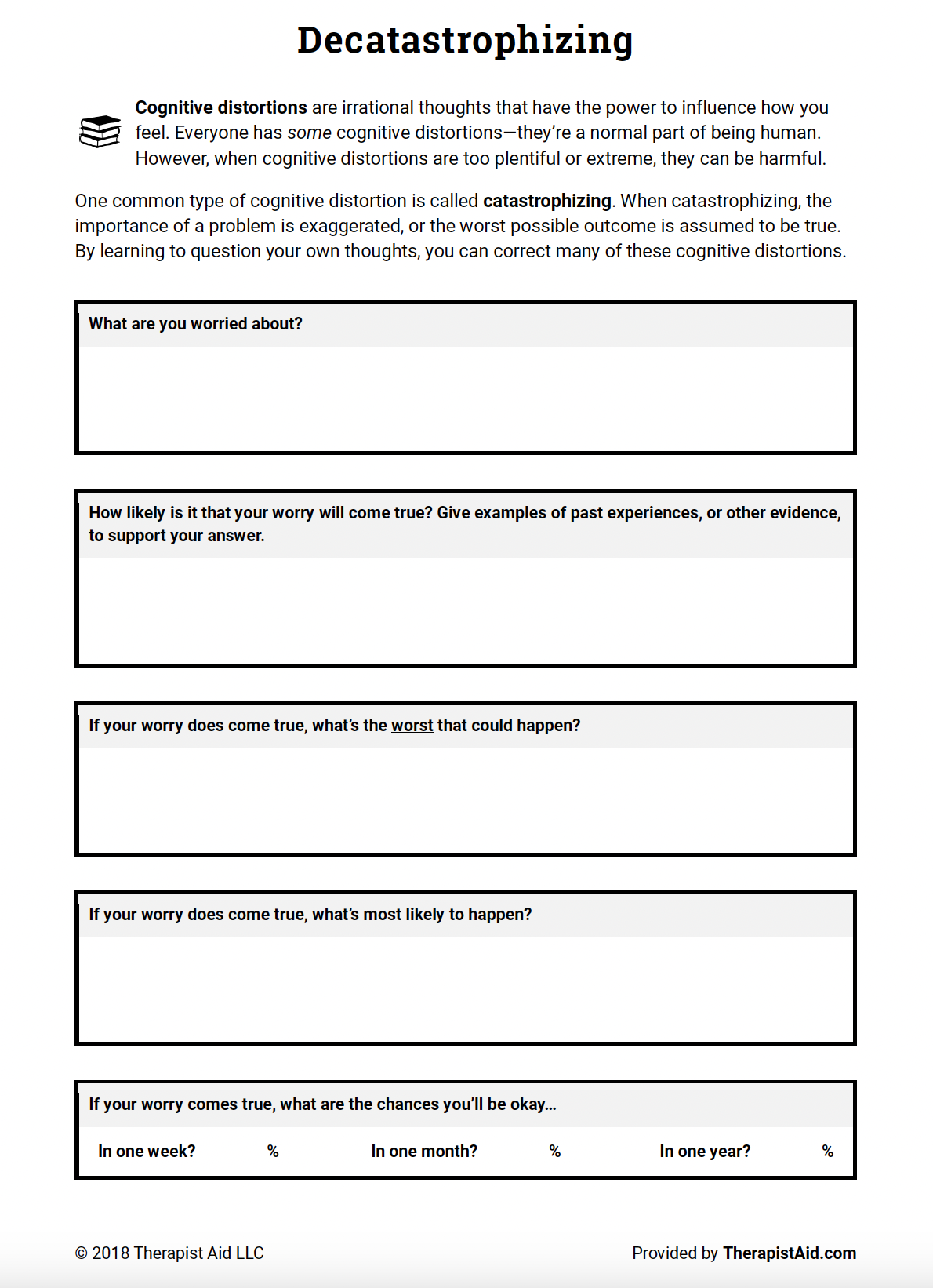Decatastrophizing Worksheet Analysis
Following up on a theme of a previous post , I've been looking at decatastrophizing worksheets. Here's an example:

I think it's interesting and wanted to talk about how it works and what it's doing. Basically, it's breaking down how to think rationally about the likelihood of some negative outcome in small steps. First you identify the concern. The next step is to estimate how likely your concern is to come true, which you do by connecting it to other things in reality (like evidence and past experiences). People overestimate how likely the worst case is to occur, so this step is the first of a series of steps designed to connect people's thinking more to reality.
The next step is to imagine what the worst thing that could happen is given your worry comes true. People often have vague, unclear fears about the future that are emotionally driven, instead of thinking carefully about what the worst case would look like. One thing that I noticed here is that it doesn't put any bounds on imagining the worst case. I've seen material where people will say stuff like "imagine the worst case within reason", since if a person lets their imagination run wild they can hypothesize that maybe they'll lose their job and get a cancer diagnosis and get hit by a truck or somesuch.
The next step asks you to imagine the most likely outcome if your worry comes true. So imagine you lose your job. A realistic worst case might be you wind up homeless or something. A more realistic outcome might be you have to get a lower paying job, take on a roommate, move back with your parents, or whatever. By imagining a range of outcomes like this, you get more of a realistic perspective on the likely consequences of some situation instead of being biased towards the most negative outcomes.
The final question is also a perspective type question. It asks you to think about the chances you'll be okay in a week/month/year. It's trying to get you to think about the long term instead of being focused on the immediate impact in a short-term and biased way. People lose their jobs or get illnesses or suffer various other hardships and setbacks and come out okay.
One thing that is interesting is that the questions the worksheet asks are pretty basic. This isn't super advanced stuff. It's a few basic questions designed to get people to look at their own experience and get some perspective. But it's very plausible to me that this sort of basic stuff helps tons of people. People get so emotionally wound up (including myself, though less so nowadays) that reflecting on a few "basic" questions like this can really be quite helpful.